Many companies are thinking about how to accelerate their digital transformation with data. In this article, we’ll discuss the benefits of using personas to structure your data-focused learning and development programs and show you how to start mapping roles across your organization. You can also learn more about Strategies for Maximizing Data Upskilling Programs in our webinar.
Training 2 or more people? Check out our Business solutions
Get your team access to the full DataCamp library, with centralized reporting, assignments, projects and more
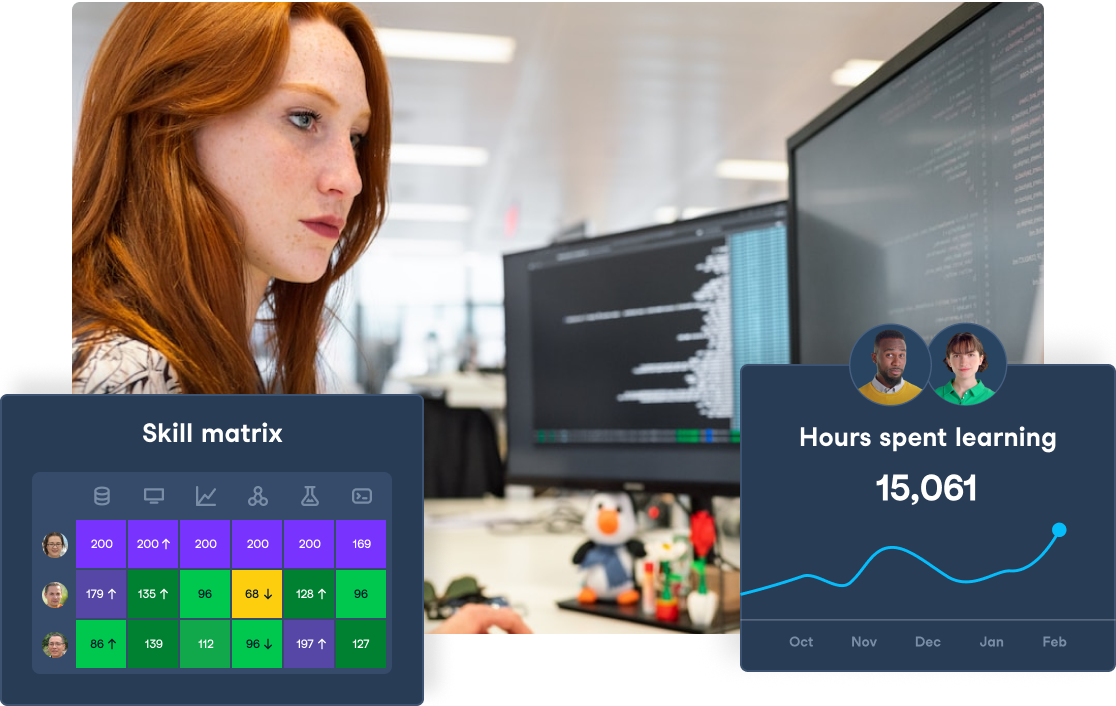
Why you should use personas in your learning journey
Every persona has a different relationship with data. Not everyone in your company has “data scientist” in their title, but that doesn’t mean they don’t need to understand how to work with and interpret data. We recommend a role-based approach to identify which skills are needed to help each role to meet their performance goals.
The purpose of data roles is to map each primary persona within your company to the skills they need to optimally perform their job duties.
The four most common personas
DataCamp currently has over 1,600 enterprise customers representing diverse industries, including financial services, healthcare, consulting, technology, consumer goods and retail, government, and more. Our business customers tend to use the following personas: Data Consumer, Leader/Manager, Data Analyst, Citizen Data Scientist, Data Scientist, Data Engineer, Database Administrator, Statistician, Machine Learning Scientist, and Programmer.
For the purpose of this blog post, we’ll focus on the four most common personas: Data Consumer, Leader/Manager, Data Analyst, and Data Scientist.
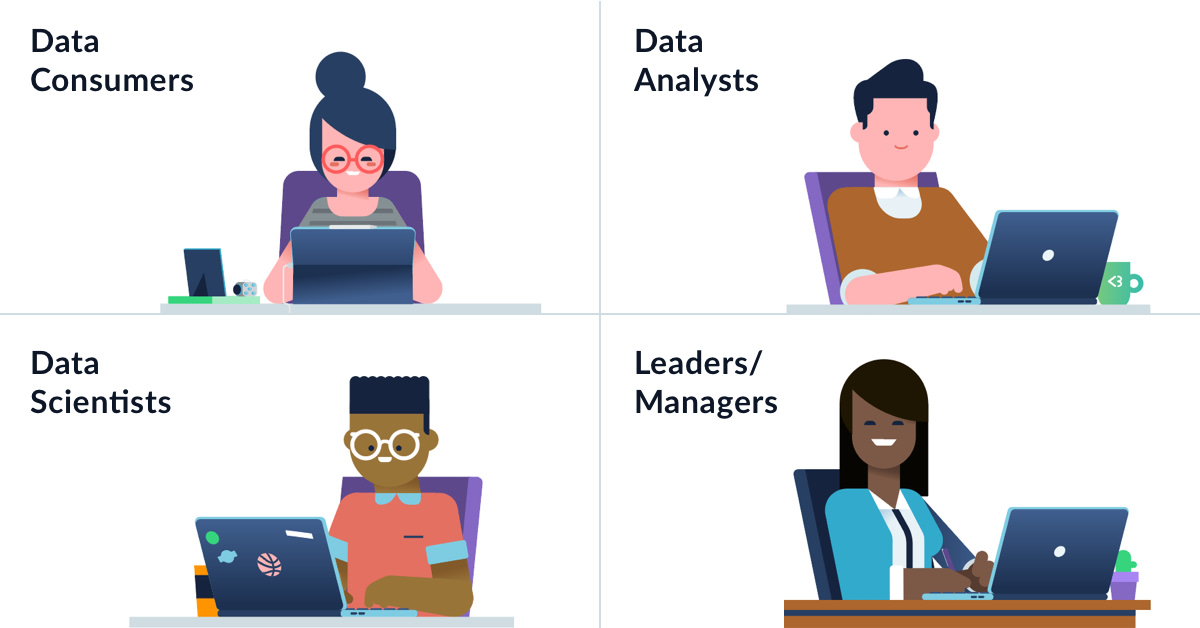
Data Consumer
- Works in a non-technical role, but consumes analytics outputs as part of their daily processes. Almost everyone will have to consume data of some type, but they also need to be able to interpret what they are shown.
- Sniff test: Could they ask a sensible question after you showed them a bar plot?
- Example role: Marketing Manager
Leader/Manager
- Uses analytics for monitoring performance and making strategic decisions. They may need a broader view than other data consumers, as they will need to understand the outputs of their data teams and use those insights to make strategic decisions.
- Sniff test: Do they make decisions based on the results of data projects?
- Example role: Chief People Officer
Data Analyst
- Defines and develops domain-specific analytics to support decision making, including calculating descriptive statistics, visualizations, and reporting. They generally need skills in reporting and BI tools to share insights, basic skills in SQL, and even some proficiency in common manipulation tasks in programming languages.
- Sniff test: Can they draw a bar plot without sweating?
- Example role: Operations Analyst
Data Scientist
- Uses advanced domain-specific techniques to perform data science tasks. They perform advanced analytics to gain insights and communicate those insights to help answer business questions. They typically have programming skills in Python or R, are confident working with data, and have strengths in advanced analytics topics, such as statistics and machine learning.
- For the purpose of this article, Citizen Data Scientists, or those who are able to perform the role of a data scientist, also fall under this category.
Mapping roles to required skills
Ask questions of the key personas at your company to understand their goals and their primary focus areas.
Frequency
How often do they require access to certain data?
Self-assessed proficiency
How would they rate their own competencies in your areas of interest?
Tools
Are they using open-source programming tools, BI tools, in-house reporting, or other tools?
Sniff tests
Are they able to understand data in context or deliver required reports or models?
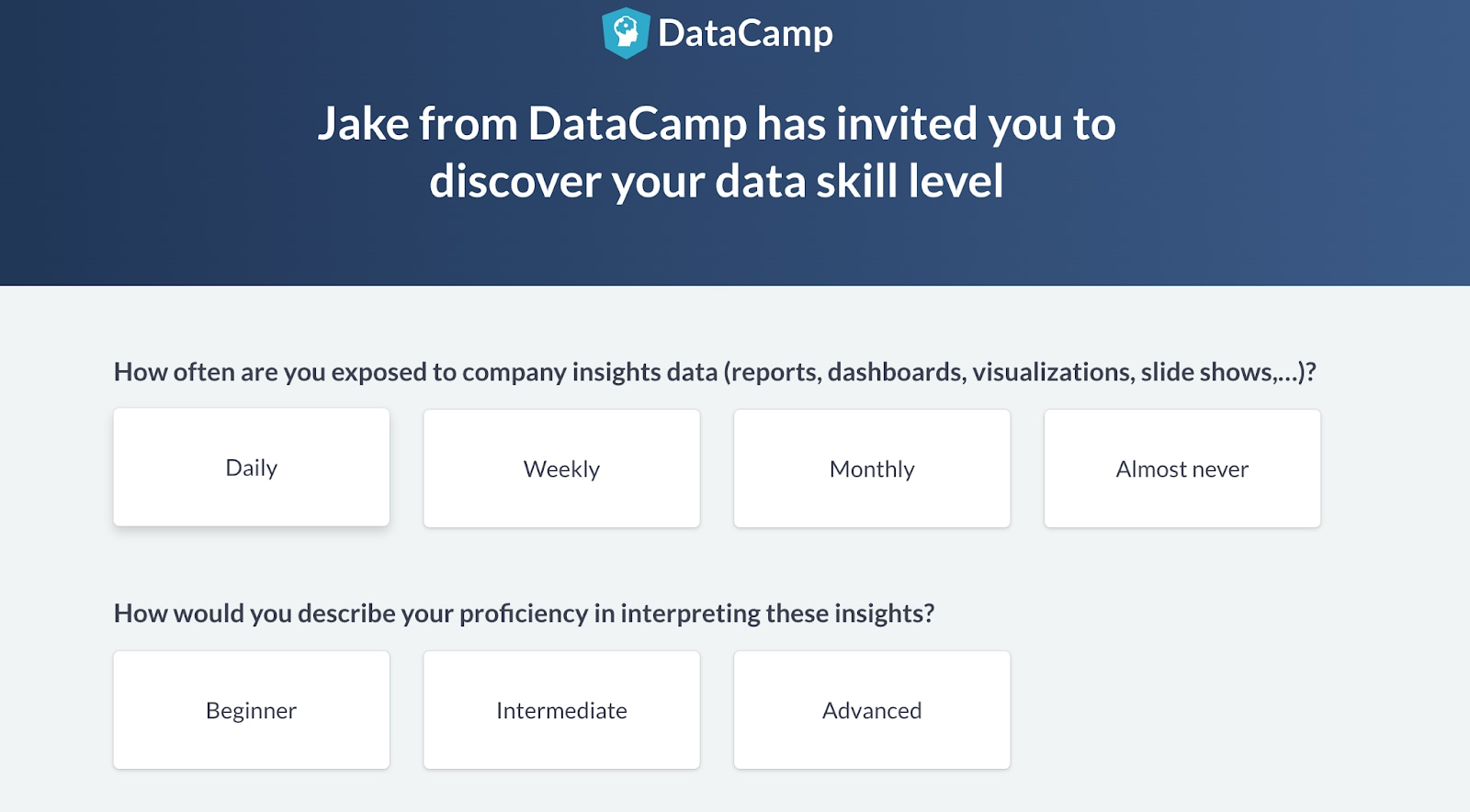
Role-based L&D on DataCamp
DataCamp offers guidance in our product experience on how to build an impactful learning experience for each role at your company.
Segment by role
You can use DataCamp’s teams feature to segment learners by roles on the platform.
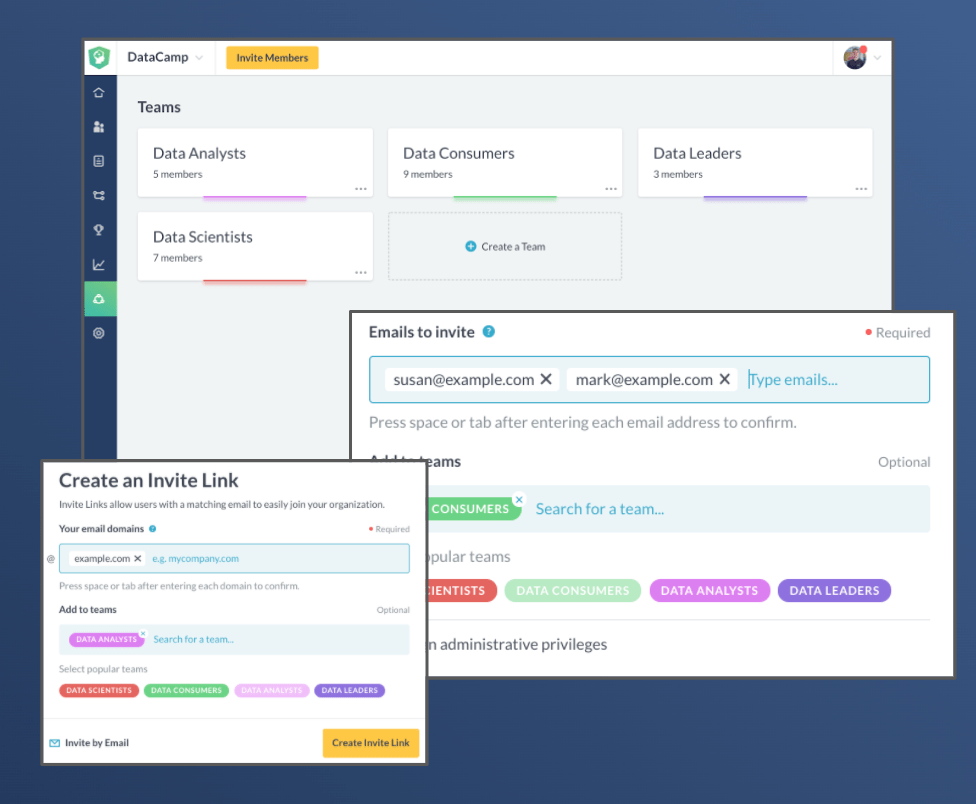
Assign by role
Create time-sensitive assignments to keep your team motivated and align their learning to content related to their data roles. Custom tracks give you the flexibility to craft appropriate learner journeys for each role.
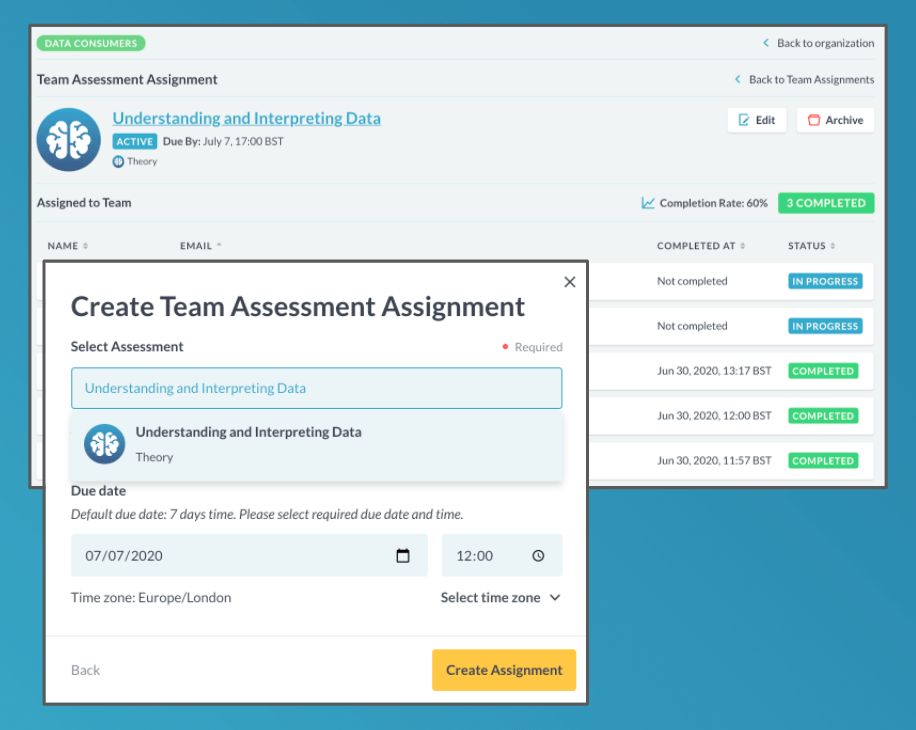
Measure and evaluate
Admins can easily understand, measure, and report on the impact training has on your organization and see how you are moving toward your learning goals.
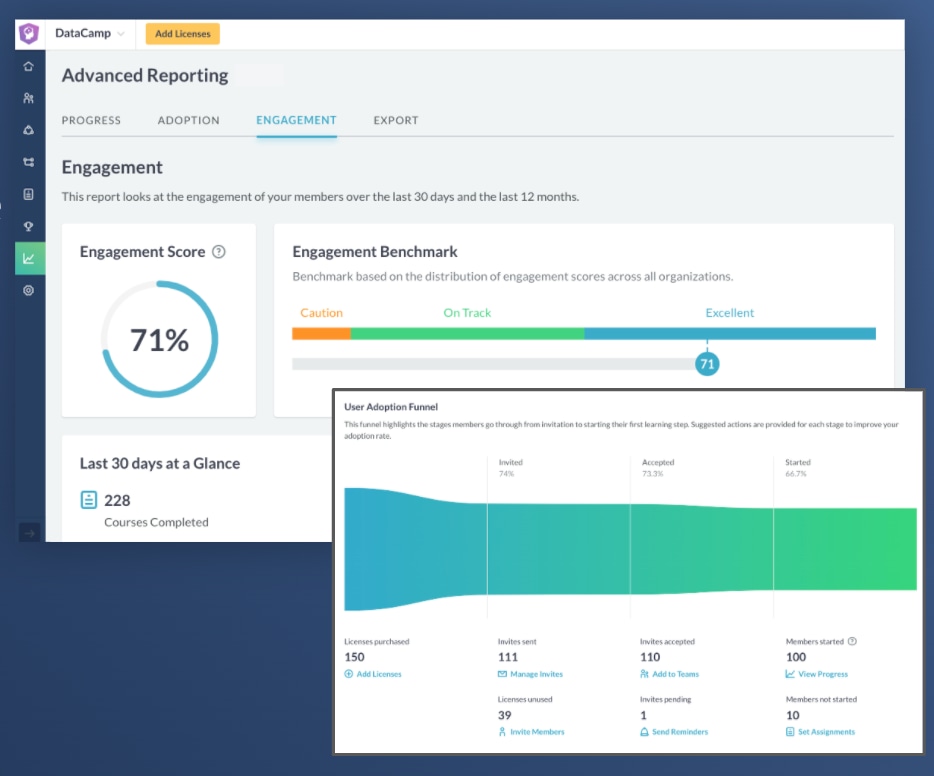
Learner benefits of using personas
Clear expectations
With so many topics and technologies to learn, it can be overwhelming to get started while juggling all of your other responsibilities. Assignments provide clear expectations for learners.
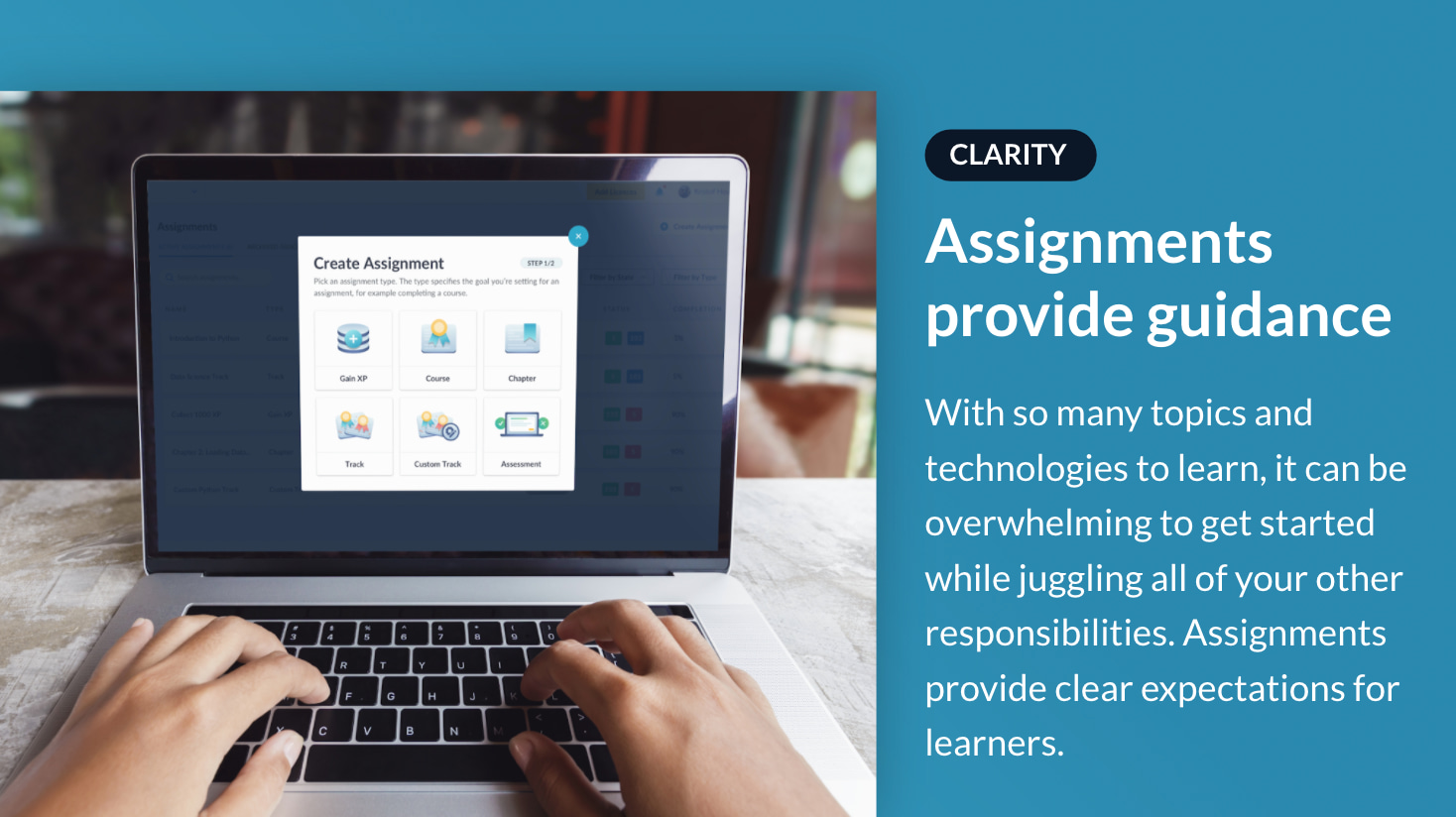
Personalized experience
With DataCamp Signal, learners receive personalized training recommendations to take their data skills to the next level. Admins can track development on their skill assessment dashboard.
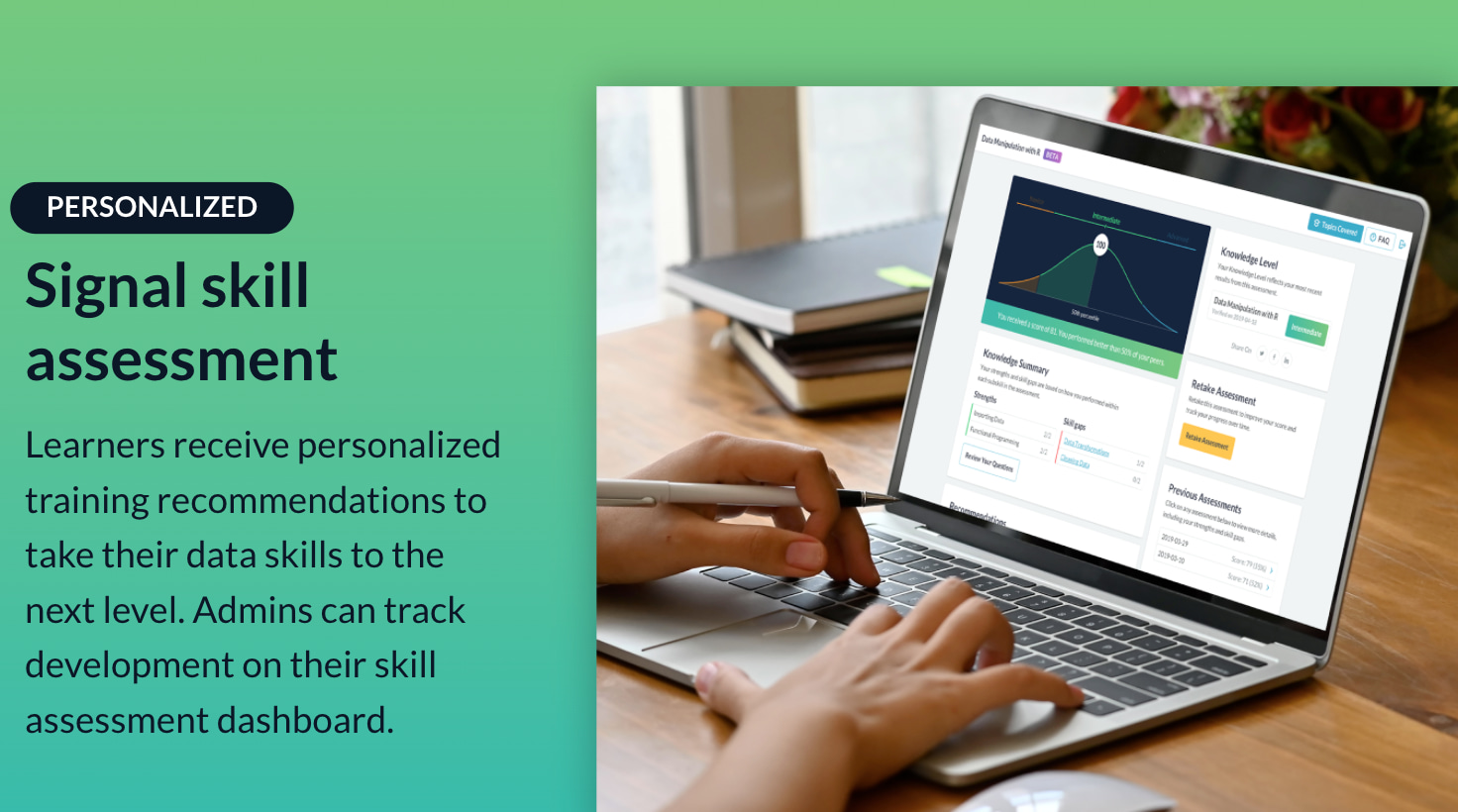
Built for busy professionals
With DataCamp, learners can fast forward their learning. We give learners the option to skip certain courses that are not relevant if they can demonstrate prior knowledge of the material by passing a Signal skill assessment.
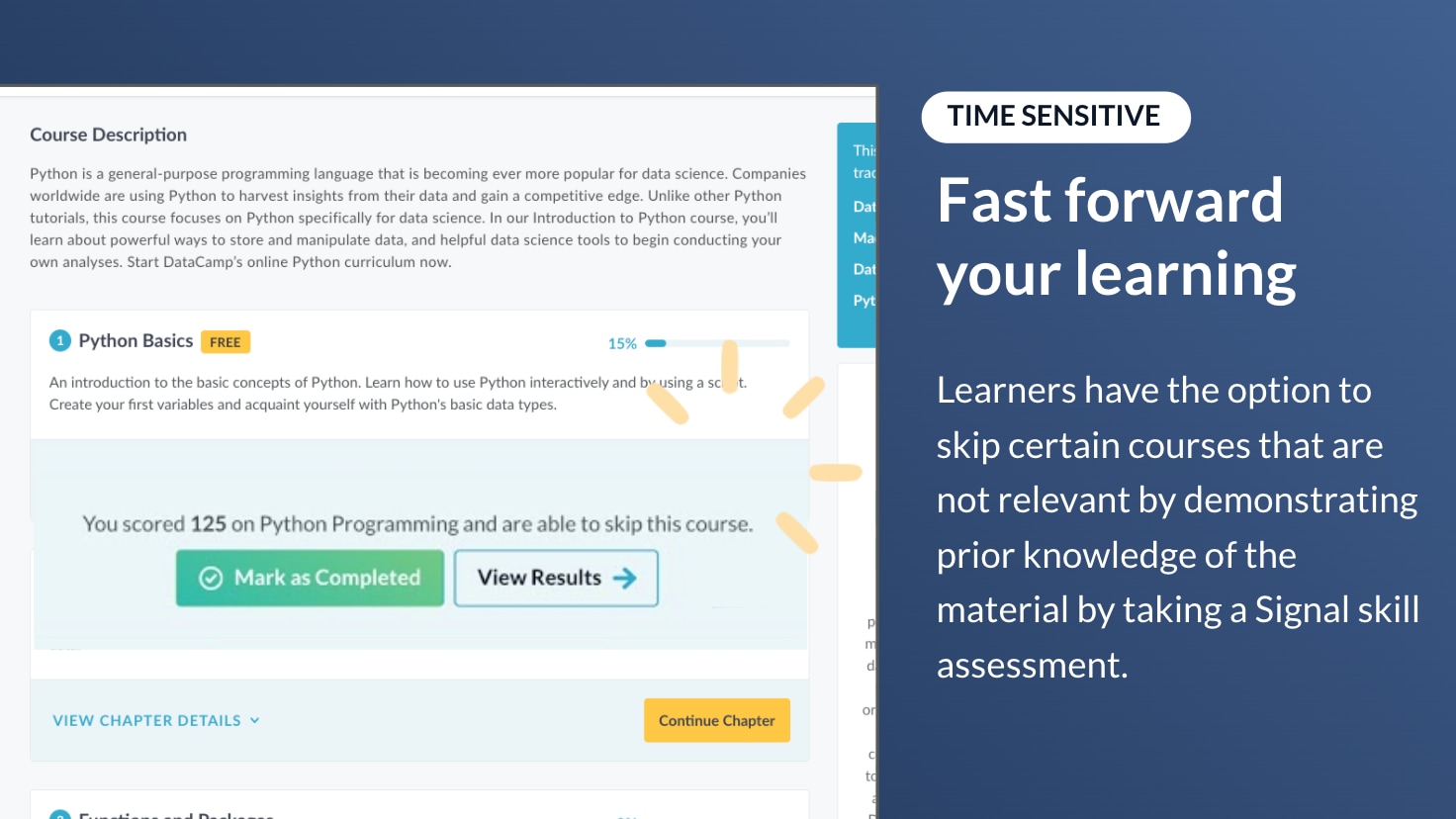
Conduct a skill audit of your team
We offer a free skill audit so you can benchmark your company’s skills. Upon signing up, you’ll also get a chance to see our newest skill assessment prototypes and the opportunity to shape how we build the product.
Training 2 or more people? Check out our Business solutions
Get your team access to the full DataCamp library, with centralized reporting, assignments, projects and more

